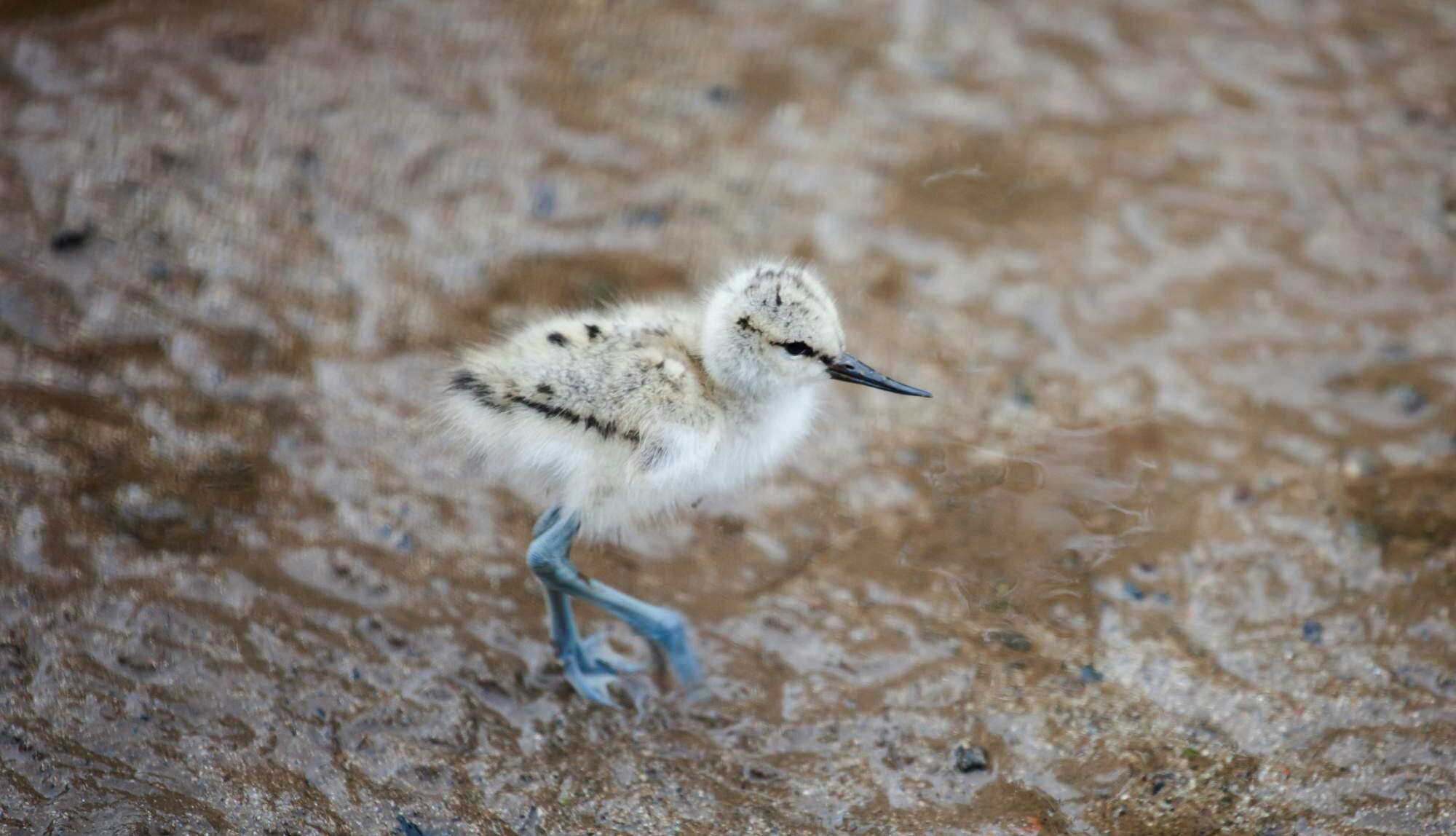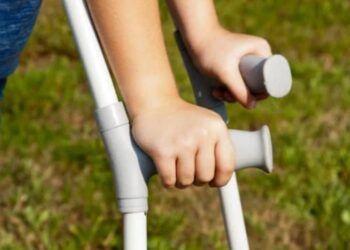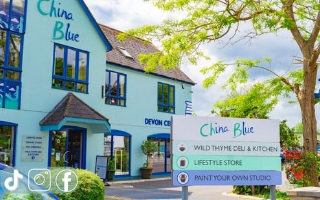One beach on the English Riviera is proving to be perfect for a very special wading bird. The beach is at Living Coasts, Torquay’s coastal zoo, and is tended by keepers with all the care and dedication of Buddhist monks raking the gravel of a Zen garden.
The reason? Pied avocets. These elegant wading birds have black and white plumage, long legs and long, thin, curving bills. Their name is said to come from the shape of the black patch on the head, which resembles the cap once worn by advocates, or lawyers, in some countries.
The species was on the edge of extinction in Britain in the mid-19th century, but started to breed on the beaches of East Anglia while they were closed during World War Two. Today they are commonly seen on estuaries like the Exe.

There’s a flock of around 30 adults at Torquay’s coastal zoo and so far this season there are about a dozen chicks. Keeper Lisa Jones says that avocets are not well represented in zoos and it’s difficult to get close to see them in the wild, so Living Coasts provides a rare and special view.
Lisa: “They breed well at Living Coasts because we provide exactly the right habitat for them – an estuary which is tidal, the right sand, appropriate shelter and some grassy areas. They can fly about inside our huge net canopy, but choose to nest at the estuary.”
The estuary is a calm corner of this busy little marine zoo. Keepers rake the sand every day to keep it soft for the birds’ feet and provide salt water pools to help keep their feet clean. The estuary is tidal, which encourages natural foraging behaviour in the mud.
“We don’t have to do too much to encourage breeding – logs are placed around the estuary to give them privacy for their nest sites and they have access to water for their mating displays. We have to source mini-mealworms that are small enough for the chicks to eat. The movement of these mealworms, as well as encouragement from their parents, stimulates the chicks to start feeding on their own within a few days of hatching.”
Guests might occasionally see the adult birds squatting over the chicks. “This is to keep them warm and protect them, but at the same time their waterproof coating rubs off on the chicks – they have no protection from the elements at this stage.”
It’s not always easy being an avocet parent. One pair, together for around 6 years, has bred successfully in the past and this year laid three eggs and hatched three chicks, all of which are doing well. Lisa: “But they were the first pair to mate and were plagued by constant interruptions from the other avocets during their mating displays and repeatedly had their nest material stolen!”
Pied avocets feed in brackish or salt wetlands, searching out aquatic insects and other small creatures. They nest on the ground in loose colonies, with eggs taking up to 23 days to incubate. Both parents sit on eggs, defend the nest and guard the brood. They live for around 15 years in zoos. For more information go to www.livingcoasts.org.uk or ring 01803 202470.

You can join us on our social media pages, follow us on Facebook or Twitter and keep up to date with whats going on in South Devon.
Got a news story, blog or press release that you’d like to share or want to advertise with us? Contact us

























